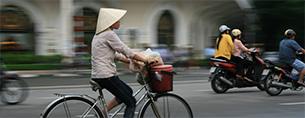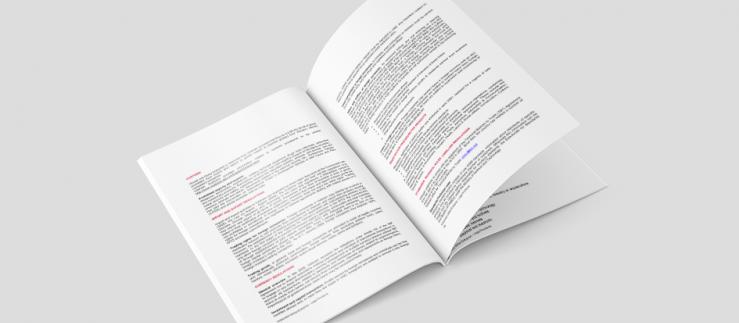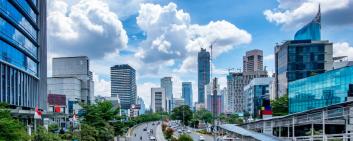Current situation
Food processing (foodstuff and beverage) is one of the major industries of Vietnam, accounting for nearly 37% of GDP. However, food poisoning is still a concern for the society and the government. During the last decade (2001-2010), there were more than 50’000 cases resulting in about 500 fatalities reported. Only 30% of those cases were traced back to micro-organisms, natural toxins or chemicals, and the reasons were unknown for the remaining 70%.
For export purpose: Vietnam exported processed food with a value of USD 31 billion 2014 (the Ministry of Agriculture) and is a large exporter of aquaculture products (shrimps and catfish) to the US, EU (37.9 thousand tones, 10.3% growth rate) and Japan. Using of antibiotics in the exposed microbial environment (water, sediment, fish bacteria) makes the environment polluted, affecting badly seafood safety. The EU with setting zero tolerance to imported seafood forces Vietnam to apply for i) Good agriculture practice (GAP), ii) authorized antibiotics and iii) analysis competence & harmonization. Furthermore, the interest for Southeast Asian vegetables and fruits is increasing in the EU, creating new market opportunities for Vietnamese producers and processors. However, vegetable farmers apply pesticides intensively and often at higher doses than recommended. The annually use of pesticide was 8000 before 1985 and increased to 80’000 tones during the last three years (2012-2014). Very little is known about the extent and amounts of pesticide residues in fruits and vegetables.
Food safety issues in Vietnam are:
- Residues of pesticides in fruits, crop plants and vegetables; heavy metals, hormones, antibiotics in animal products; and misuse of food additives in food processing.
- Fruits, vegetables, poultry, eggs, fish, meat and animal organs and food additives are illegally imported and different kinds of pesticides incl. prohibited chemicals were found in them.
- Substandard food and products that contain unsafe additives (colors and preservatives) are widely sold.
Opportunities for food testing / analysis services
- Strong political commitments to implement issues related to food safety & hygiene. Inter-ministerial Steering Committee for Food Safety & Hygiene is established at all level.
- International organizations FAO, WHO, CODEX are strongly supporting laboratory capacity building, both financially and technically.
- The New Food Safety Law was adapted (2011), with compliance with GMP, GAP and HACCP. Under this, three important sub-laws:
- i) Government Decree 38/2012/ND-CP in 2012 to implement the Food Safety Law
- ii)) Ministry of Health’s Circular 19/2012/TT-BYT dated 9. Nov. 2012 regulating Conformity Announcement and Food Safety Conformity Announcement
- iii) Inter-ministerial Circular 20/2013/TTLT-BYT-BCT-BNNPTNT dated 1. Aug. 2013 regulating Conditions, Procedures for Appointing Food Testing Establishments.
- Food inspection is carried out at all levels: rapid test kits are used at the district level and analysis is done with the four national laboratories for food safety.
Recommendations for Swiss companies offering food testing instruments
Demand for food safety testing in Vietnam is anticipated to grow (CAGR) at 10%-11% annually between 2014 and 2020, primarily driven by rising number of food-borne illness, stringent regulations, opening of food testing services to foreign investment (WTO commitments), food export and greater consumer awareness. Companies engaged in food manufacturing and food export are mandated to implement food safety testing and certification at recognized laboratories, many of them with ISO/IEC 17025. Vietnam has all three types of laboratories; 1) Appointed testing laboratory by competent authorities; 2) Recognized independent testing laboratory: commercial and independent from food producers; 3) Accepted testing laboratory: belongs to the food producer, recognized by an accreditation agency and approved by an overseas competent agency. The purchasing power of these laboratory types is equal.
Swiss testing instruments for contaminants (pathogen, pesticide residues, toxins) in seafood, coffee, rice, beverages, meat & poultry, dairy, fruits & vegetable and those having rapid testing technology (like PCR, Chromatography and ELISA) have higher chances in Vietnam.







